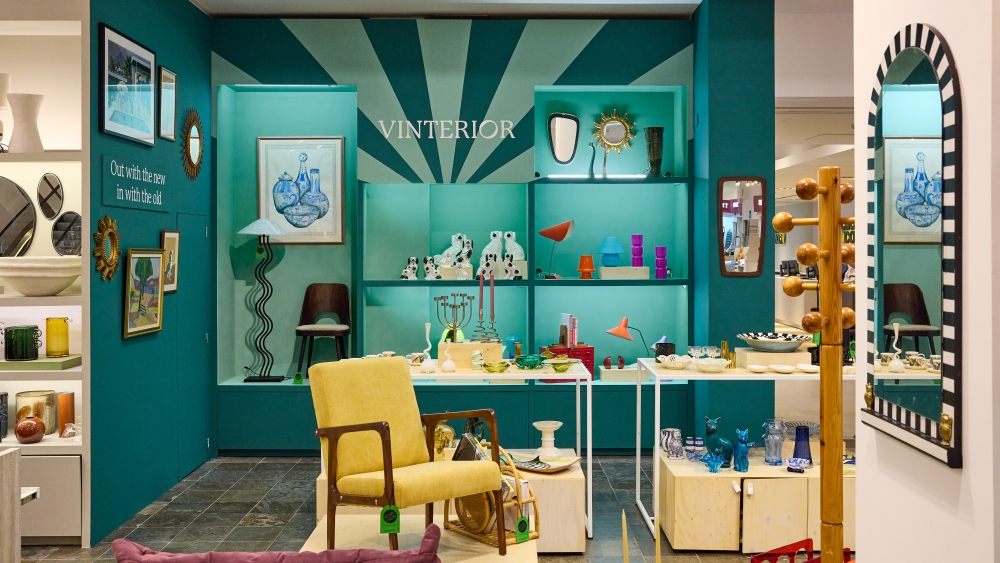LONDON —Selfridges is shifting its sustainability efforts into high gear, urging its customers to eschew the new and shop second-hand, swap their old clothing, and embrace repairs and upcycling through a storewide takeover called Worn Again.
Unlike Selfridge’s themed takeovers of the past, Worn Again is about highlighting old products rather than new ones, and urging customers to rethink their wardrobes, how they shop, and whether they can extend the life of their favorite things.
The initiative is part of a wider drive by Selfridges to go greener, faster.
As reported last September, Selfridges has accelerated its net-zero carbon-emissions goal, moving its deadline up to 2040 from 2050 as a promise to the Climate Pledge, a cross-sector group of companies committed to reaching net zero 10 years ahead of the Paris Agreement.
As part of that commitment, Selfridges also set a target of ensuring that at least 45 percent of its transactions (excluding food, restaurants and homeware) come from recycled products or circular services such as resale, rental, refill or repair.
There will be a series of Swap Shops, a charity sale and a “stock market” in The Corner Shop, where items can be valued, traded, repaired or upcycled. Customers will be able to book services such as moth-hole repair, and bespoke customization with frills, zips, appliqué and screen printing.
The retailer is launching subscription and rent-to-buy services, and welcoming Vinterior, a pre-owned furniture marketplace online.
Vinterior will open its first physical space at Selfridges, stocking midcentury modern furniture, and one-of-a-kind pieces from brands including Ligne Roset, Ercol and G-Plan.
As reported, Selfridges has already expanded its partnership with the luxury vintage clothing store OOTO London, which will be highlighting different marquee designers this year.
To coincide with The Metropolitan Museum of Art Costume Institute exhibition “Karl Lagerfeld: A Line of Beauty,” Selfridges and OOTO London will present an edit of the late designer’s oeuvre across many decades and fashion houses.
Selfridges has taken on new labels with green values embedded into their collections.
These include Starlit, a Los Angeles-based label known for its sustainable fabrics, and Conner Ives, who has made a name repurposing piano shawls into halterneck tops or old T-shirts into day dresses.
Selfridges’ green campaign began under Weston family ownership, and new owners Central Group and Signa Holding, which purchased Selfridges last year for a reported 4 billion pounds, are 100 percent behind the strategy.
As reported last September, the new owners’ plan is to make key tweaks to the business, but not to the overall strategy, operations or personality of the store, which has become synonymous with British luxury, creativity and green values.

